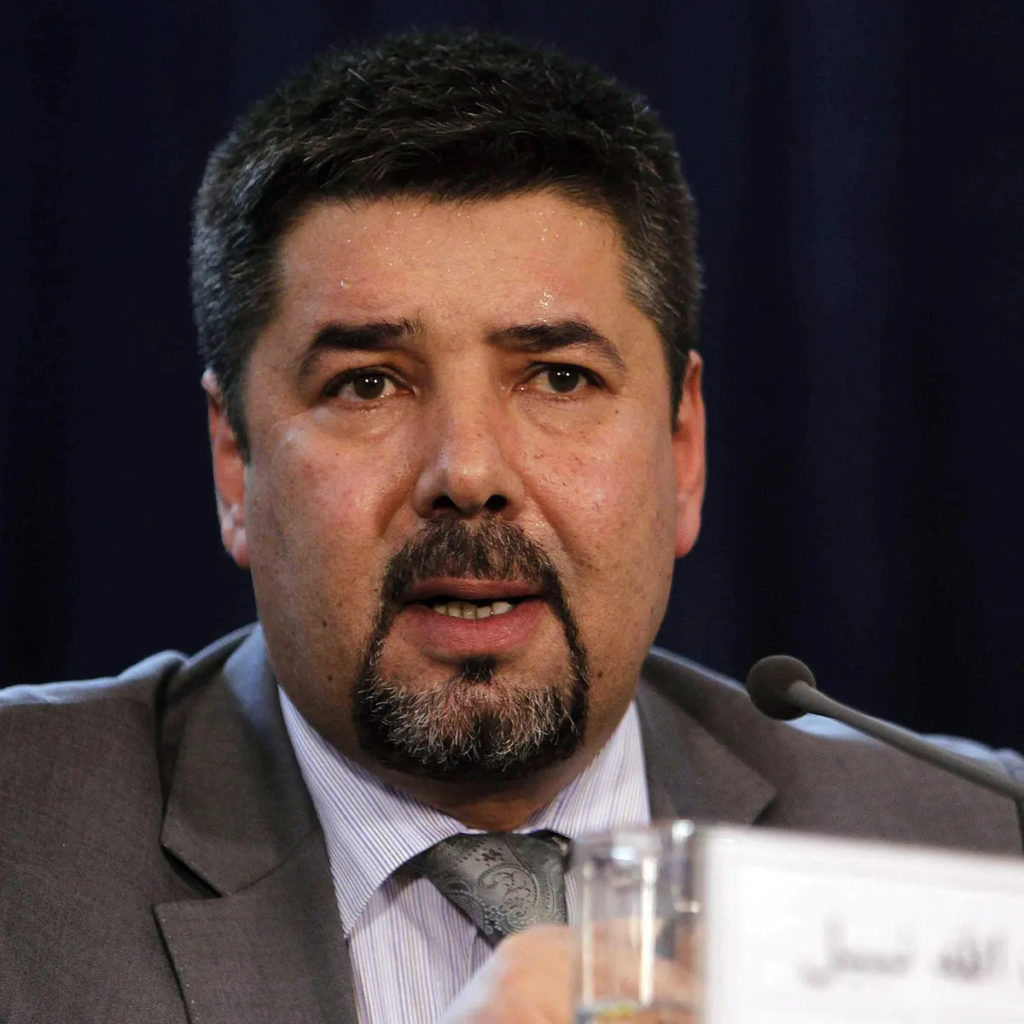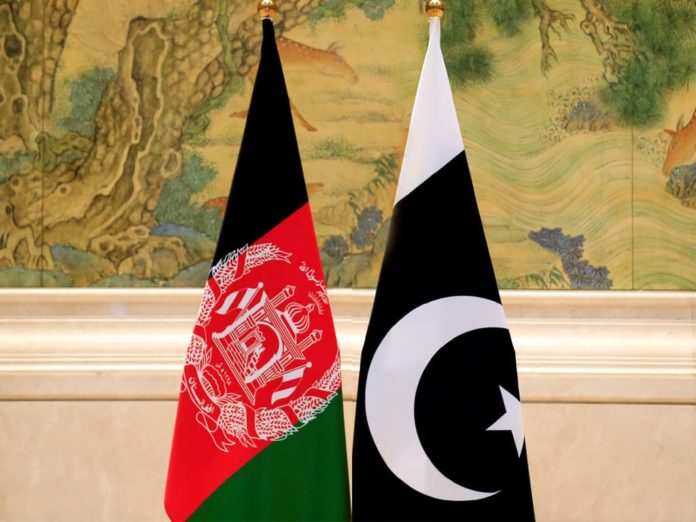Even as Afghanistan struggles to cope with the trauma of civil strife and a chaotic socio- politico and economic situation, its problems are becoming more complicated with every passing day. It is bleeding internally because of a number of grave factors including the political scenario which is marred with maneuvers and intrigues between power hungry ethnic and political groups and individuals. It is unfortunate that Afghanistan has struggled since 2001 to find a stable and powerful political govt; all govt’s that came showed callous ignorance towards the people’s welfare, the scenario that has evolved is indicative of the apathy in responding to the challenges. One thing that all govt’s had in common to divert public attention was to blame almost every thing on Pakistan without ever acknowledging their own shortcomings. With a known habit of projecting its internal problems onto Pakistan, Afghanistan has in the past accused it of backing the insurgency in Afghanistan, among other things – a claim that Pakistan has always denied outright. Peace and stability in Afghanistan is in Pakistan’s own interest and it is committed to promoting peace and reconciliation in Afghanistan for the best interest of the two countries and the region itself. But even President Ashraf Ghani, taking cue from his predecessors went so far as to say that Pakistan must earn Kabul’s trust if Islamabad wishes to play the role of mediator in any peace talks. Pakistan has always been forthcoming and has shown willingness to play the integral role in the peace process. Afghanistan must curb its tendency of pointing accusing fingers at Pakistan every time an incident takes place and instead try to figure out why it is failing to protect the sovereignty of its state and then deal with the problem; if required, Pakistan can always help out. By now it should be clear that any anti-Pakistan campaign will be counter-productive and will not serve the interests of the people of the two countries.
The dangerous power games that are being played out in Afghanistan between different political entities have left huge scars on the political landscape, these might be almost irreversible. To complicate matters, a political opposition. Comprising of former warlords and cabinet ministers in the Karzai govt has cropped up and warned President Ghani’s administration to hold local elections within the next nine months otherwise it would lose legitimacy. Not surprisingly, some members in this group are believed to have been involved in embezzlement and corruption that plagued the former govt of Hamid Karzai. On another front, Afghanistan’s economy is experiencing serious stagnation with unemployment soaring and public confidence fast evaporating. All is also not well in the national unity govt and a few cracks are beginning to appear in the coalition, this is only helping and emboldening armed opposition groups and also affecting the security situation in the country. Mired in grave internal challenges and an exacerbating security situation it is now up to the Afghan govt how pragmatically it approaches the situation. For the benefit of readers I am reproducing my article titled “HEART OF ASIA” HEART ATTACK.
One of the immediate fallouts of the “Heart of Asia” Ministerial Conference in Pakistan over the past few days was the immediate resignation of Rahmatullah Nabil, Head of Afghanistan’s premier intelligence agency, the National Directorate of Security (NDS), yesterday Briefly sacked in 2012 by former President Hamid Karzai before being reinstated, this powerful intelligence Chief has headed the NDS for about five years. Leading the few Afghan diehard officials who are not in favour of the reconciliation process, Nabil was reportedly very upset over reports that talks between Afghan government and Taliban could resume soon. His resignation took place soon after he went on record angrily criticising his boss Afghan President Ashraf Ghani for his remarks at the Opening Session of the conference in Islamabad.
Afghanistan has had a series of setbacks against the Talibaan in recent months including the fall of the northern city of Kunduz to the Taliban and an insurgent raid on Kandahar airport in the south on Tuesday in which 50 civilians, police and security personnel were killed. These had caught security forces badly unprepared, an inquiry on Kunduz ordered by Ghani blamed it on poor leadership. In fact many blame Rahmatullah Nabil for recent escalation in Taliban attacks in the country because he focusses all his energy and NDS capacity an attacking Pakistan instead of concentrating on internal security. The attacks exposed a huge failure by the intelligence and Afghan security forces. On the release of the enquiry Ghani had dismissed some NDS officials, including the NDS Provincial Chief. Since then relations between Ghani and the NDS had been strained.
Nabil was so powerful that even before his resignation letter was made public, he went on record with an angrily worded post on “Facebook” making clear his frustration with efforts to work with Pakistan, orchestrating the canard that “Pakistan is supporting the anti-government elements in Afghanistan.” His quote to the online Afghan news service Khaama, “Innocent Afghan civilians were martyred and beheaded in Kandahar airfield, Khanshin district of Helmand, Takhar and Badakhshan when the same Nawaz Sharif was delivering his speech calling the enemy of Afghanistan as Pakistan’s enemy”.

The resignation highlighted the fundamental disagreement between President Ashraf Ghani and those motivated Afghan elements that have hindered efforts to fight the growing Taliban insurgency. The NDS has in recent times made public its stance on Pakistan. Strongly opposing Ghani’s moves toward a rapprochement with Pakistan, Nabil said in his letter of resignation from the National Directorate of Security (NDS) that there had been “a lack of agreement on some policy matters” in recent months. Nabil said the President had imposed unacceptable conditions on the way he did his job, with “repeated verbal summons that put him under impossible pressure and forced has resignation. On his part Ghani seemed to take it in his stride saying he had not wanted Nabil to resign because of the difficult security situation but he respected his decision and an interim replacement would be named soon .
Coming a day after Ghani attended the “Heart of Asia” Conference in Islamabad, it also clouds prospects for a coordinated effort to resume peace talks broken off this year between the Afghan govt and the Taliban. Ashraf Ghani’s official Facebook page was immediately flooded with hundreds of angry comments from Afghanistan’s active social media users, most of them abusing the government including one which said “Shame on the presidential palace, Nabil resigned because he was anti-Taliban and anti-Pakistan”.
RAW’s machinations in Balochistan, orchestrated and supported by NDS, RAW-controlled Afghanistan’s Intelligence agency continue. RAW has a proven association with TTP. Latif Mehsud, TTP’s No. 2, escorted by Afghan intelligence agents to meet Karzai, had been captured by US Special Forces and taken to Bagram. Why did (than) President Karzai vociferously demand his release? And who gives sanctuary and support to Maulana Fazlullah? Who were the Uzbek terrorists working for? What about the five NDS agents in telephonic contact with the terrorists in the APS Peshawar attack? Forgive me for being suspicious!
It is yet to be seen who wins out in the power struggle. Nabil is very powerful and has very powerful supporters, not many compared to the “great silent majority” in Afghanistan who want peace and recognize Pakistan being control to any solution, but their presence in very powerful posts in Kabul could make life difficult for the already beleaguered Ghani Presidency. On the other hand, Nabil and his supporters have been badly exposed as the venal minority in Afghanistan fed and reared by RAW which want to continue the conflict at any cost just to spite Pakistan, even if it means Afghanistan degenerating into an abyss of chaos and anarchy.
Among the hundreds and hundreds of thousands of Afghans who have lived (and are living) off Pakistan’s dole, ungrateful Rahmatullah Nabil spent his youth as a refugee in Pakistan studying in Peshawar. Spare a thought to why Europe is so suspicious of the 300000 refugees now on European soil? And we have cared for ten times more, 3 million of them on Pakistani soil for the last 35 years, with out complaint and without Afghan gratitude! How many are like Nabil?




